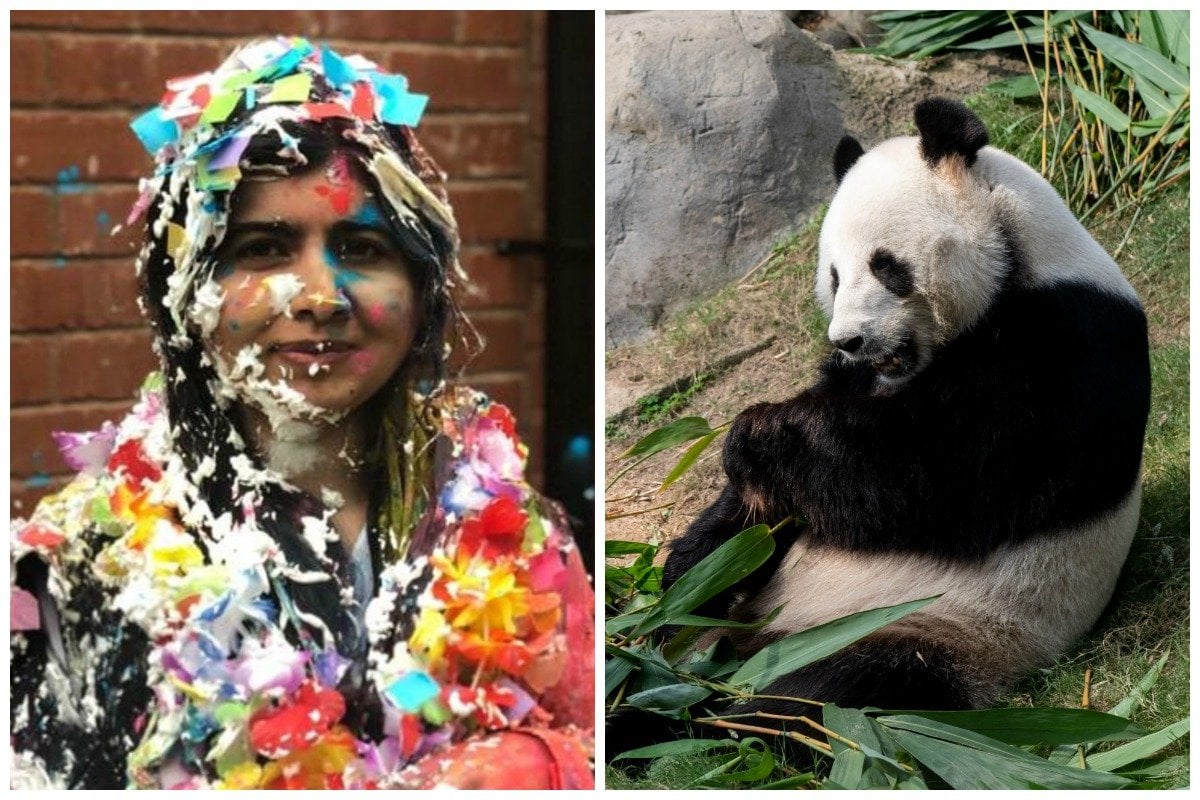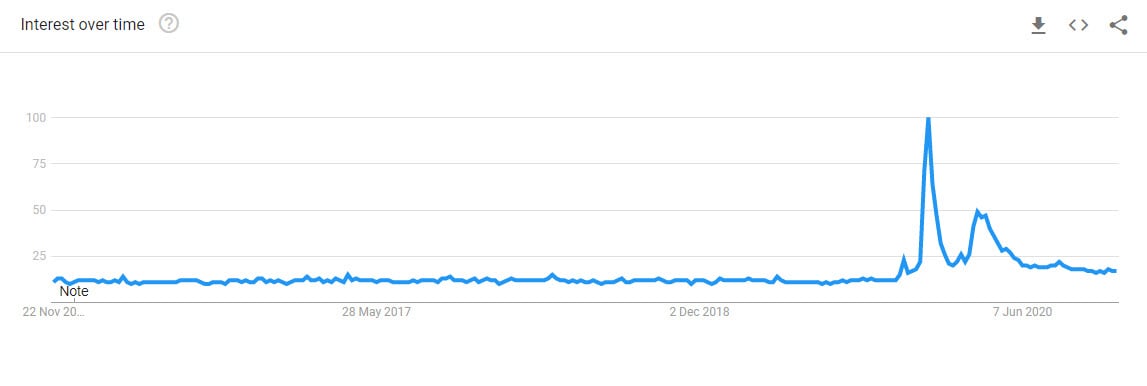
In 2020, people have been seeking out 'good news' more than ever before.
In a year of collective grief, trauma and sacrifice, with our daily news headlines and social media feeds dominated by negativity, it's easy to see why.
We need good news.
A look at Google Trends really shows just how much. I looked at data over a number of timeframes, but the below graph from the past five years of Google searches for 'good news' across the world is just so telling.
 Image: Google Trends.
Image: Google Trends.
